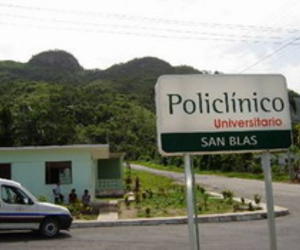Cuban Health System with Positive Results in 2012
- Submitted by: lena campos
- Health and Medicine
- 01 / 04 / 2013

The Cuban Public Health System reported positive results in 2012, marked by efficiency and effectiveness in meeting the needs of the population. This fact was presented at the First International Convention on Health recently held in Havana, which was attended by over 1,500 experts from 67 countries, including 25 health ministers.
The convention offered the appropriate scenario for the exchange of experiences and the presentation of South-South cooperation between the countries that make up the Bolivarian Alliance for the Peoples of our Americas regional integration bloc (ALBA) and other countries of the region, as well as Asia and Africa. A number of already existing collaboration agreements with Cuba were extended, while other new accords were signed in the area of training and assistance of high-level specialists by Cuban professors.
Weather conditions during the year favored the proliferation of Aedes Aegipty mosquitoes, with increasing infestation levels in the country. This situation posed a challenge to the Cuban Health System, which managed to lower infestation levels by 45 percent, with the active participation of the people. As a result, dengue cases did not reach the epidemic stage; they were maintained in the level of outbreaks, while the transmission of the disease was cut. Meanwhile, all health conditions are ready to face the 2013 rainy season.
Another important challenge was posed by a cholera outbreak with isolated cases in the country’s eastern region, which was put under control in a short period of time.
In 2012, the infant mortality rate was maintained at 4.5 deaths per every one thousand live births, despite the world economic crisis and the tightening of Washington's economic blockade of the island, which has a particular impact on the Cuban Health System.
The birth rate is an indicator likely to increase, because during the past year, the country reported 6,000 births less than in 2011. With this aim, the Health Ministry has set up specialized services in four provinces to treat infertility. These services will be available in January, under the auspices of the National Center in Havana.
In Cuba, with 17.9 percent of the population over 60 years of age, health authorities are working in the field of geriatrics and gerontology, not only to improve life expectancy -- currently at 77 years of age -- but also to provide the people with higher quality of life and make them useful to society.
Another goal for 2012 was the administration throughout the country of the pharmaceutical known as Heberprot-P, to treat diabetic foot ulcers. Its application has avoided lower limb amputations in over 90 percent of the cases. The Cuban medication has also benefited thousands of people in other regions of the world.
HIV-AIDS prevalence has been reported at 0.1 percent, being one of the lowest indicators in the world, thanks to sustained promotion and prevention work, particularly by carriers of the disease. More than 90 percent of HIV-AIDS sufferers enjoy good quality of life, because anti-retroviral medications are guaranteed to all Cuban patients that need them.
Following the implementation of the economic and social guidelines adopted by the 6th Congress of the Cuban Communist Party, the health sector has worked effectively with a reduced annual budget. Lowering the budget by more than two billion dollars without affecting health services to the people, at the same time the system has improved services and indicators by increasing its contribution to the country’s economy.
Source: RHC
Comments